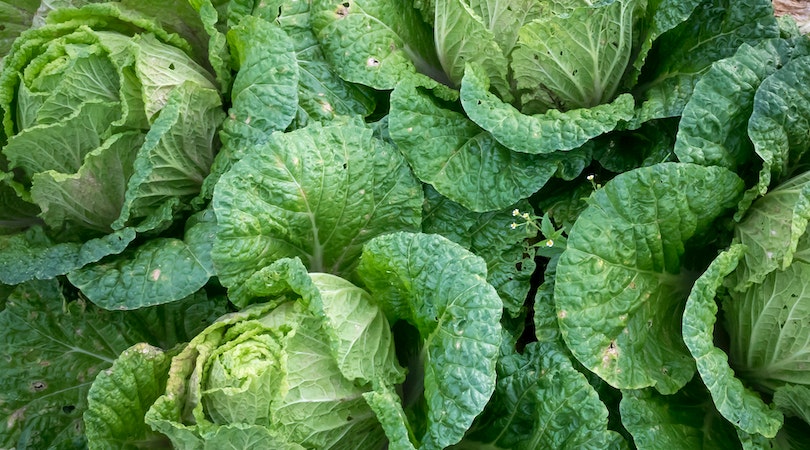Farming Businesses
How to Start Vegetable Farming in Nigeria: Full Guide

Are you thinking of starting a vegetable farm in Nigeria? And you do not know the process involved and possibly the profits you can make from the farm? Read this article to the end. In today’s post, we will share everything you need to know about vegetable farming in Nigeria.
There are many types of vegetables in Nigeria. These vegetables range from onion, tomato, okra, pepper, carrot, melon, spinach, water leaf, scent leaf, pumpkin leaf, thyme leaf, curry leaf, cucumber, and more. Many of these vegetables are not planted the same way in Nigeria.
Their harvest is not also the same. While some will be harvested at the roots others will be harvested above the roots. However, they all involve a general step-by-step guide in the planting process.
Is Vegetable Farming Profitable?
Vegetables are widely consumed in Nigeria because of the natural nutrients they contain. Because it is cheap to get vitamins and minerals from vegetables, both the young and the old in Nigeria eat vegetables regularly to stay healthy. Vegetables can be made in the form of soups or they can be eaten raw.
As a vegetable farmer, you can sell your vegetables right on your farm when buyers come directly or simply sell to market women by delivering them to them.
Capital Needed to Start Vegetable Farming
The capital needed to start vegetable farming in Nigeria is not intensive. If you have farmland it even makes it easier. All you need to do is get your seeds and start planting. On the farm, you can plant different vegetables or plant just one vegetable.
If you do not have farmland most of the capital will go into acquiring or renting farmland. To start a vegetable farm in Nigeria you will need a capital of at least #1,000,000.
Things Needed for Vegetable Farming
Here are the things you need to start a successful vegetable farm in Nigeria.
1. Capital
This is very important. You need money to buy most of the things you do not have. You will also need money to hire laborers and buy farming equipment.
2. Farmland
As a farmer, having a farmland is an asset because it is impossible to plant crops without farmland. If you want to buy a farmland for your vegetable farm it is best you buy swampy land as this type of land is the best for growing veggies.
3. Quality Seeds
You need to buy quality seeds. If your seeds are bad your crop yield will be low. In this case, you need to locate a farmer that has good seeds to buy from him.
4. Water
Any type of water can be used to grow crops especially vegetables as long as the water is not soapy or acidic. You need a viable source of water to water your veggies.
How to Start Vegetable Farming in Nigeria
Here are the steps to take to start vegetable farming in Nigeria.
1. Conduct your Market Survey
Conducting your market survey is very important. Doing this will make you know which vegetable is the most lucrative (most sought-after). In some areas, vegetables like ugu are the most sort after. Your market survey will also let you know the times and seasons vegetables sell the most.
For example, vegetables sell more during the rainy season. This is because it is the harvest season of vegetables and it is the period many individuals fall sick more. During the rainy season, sales are fast and the waste is minimal. But during the dry season, patronage is low and loss is likely to increase.
Before starting this business, it is important you write your market survey first. Read our guide on how to conduct market research for new and old businesses
2. Write your Business Plan
A business plan is necessary for this kind of farming if you are going into it on a large scale. When you have a business plan for your vegetable business, it makes sure everything needed to be done to kick start the farm is done without leaving any stone unturned.
There are many ways in which you can get a business plan for vegetable farming. You can write one yourself, buy one online or ask a professional to write one for you based on the capital you have at hand. I usually encourage entrepreneurs to hire a professional if they are not confident in writing one themselves.
You can hire us. We can get your business plan ready within 5 working days maximum. Contact us via our official email [email protected] if you are ready. Read our post on how to write a business plan in Nigeria just in case you want to write it yourself.
3. Get the Required Capital
It is almost impossible these days to start a business of any sort without capital. You need capital to start a vegetable business except all the resources needed are available for you for free. You need to get the capital stipulated above to buy good farmland, seeds, water, and workers.
Doing the farm work alone can be too much for you except if you have grown children to assist you.
4. Buy or Rent a Farmland
If you do not have too much you can rent a farmland instead of buying. After acquiring the land you need to clear, the land and make other preparations to enable the farmland to grow your vegetable easily.
5. Plant your Vegetables
To get the best result, you need to first create a nursery to plant your veggies. A nursery is a place set aside to grow your seeds to seedlings. When the seedlings are now mature enough you can then transfer them to your farmland.
To do the transferring of each seedling successfully, you need to bury each seedling base in the soil without exposing the root and water them adequately after transplanting. Within the first 3 days of transplanting, you need to water your crops well especially before the sun comes out in the morning or in the evening.
6. Water and Nurture Vegetables
As I explained earlier, vegetables grow well in swampy soil. However, if the soil of your farm is not swampy you will need a watering can or hose to water your farm adequately. Pay attention to crops looking pale and add manure to their roots to revitalize them. During the rainy season, you do not need to water your crop as over-watering can kill your crops.
7. Harvest your Vegetables
Depending on the type of vegetable you planted when it is time for harvesting you might need to pluck, uproot or cut the stems of your vegetables. You need to do this process neatly and put your harvest in baskets or sacks. Immediately after harvest, vegetables must be delivered to customers to retain freshness.
If it will take days before they will be delivered you need to water them at least twice daily to retain their freshness. As a vegetable farmer, you can sell a sack of vegetables from #5,000 – #10,000. If your land is up to a plot you should be able to harvest up to 20 bags of vegetables from your farm.
Conclusion
Vegetable farming is a lucrative business in Nigeria because Nigerians eat a lot of it to get vitamins and minerals. As a vegetable farmer, you can make money daily selling your vegetables to consumers.
Recommended:
- How to Start Okra Farming in Nigeria
- How to Start Waterleaf Farming in Nigeria
- How to Start Crayfish Business in Nigeria
- Top 10 Richest Farmers in Nigeria
- How to Start Fish Farming in Nigeria
📡Join Our Social Media Channels:
Facebook: theinfoWorth
YouTube: Ralph Finance










